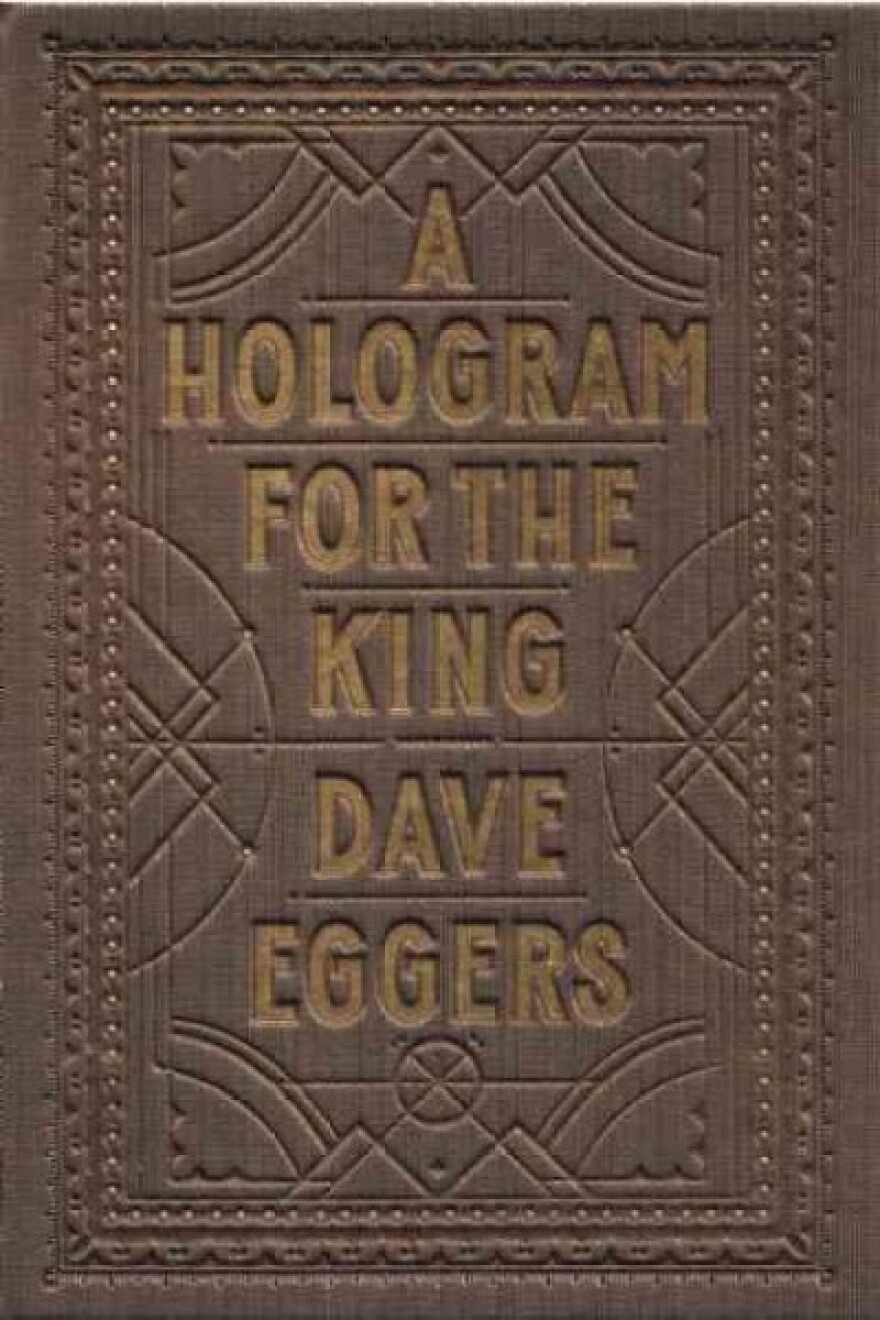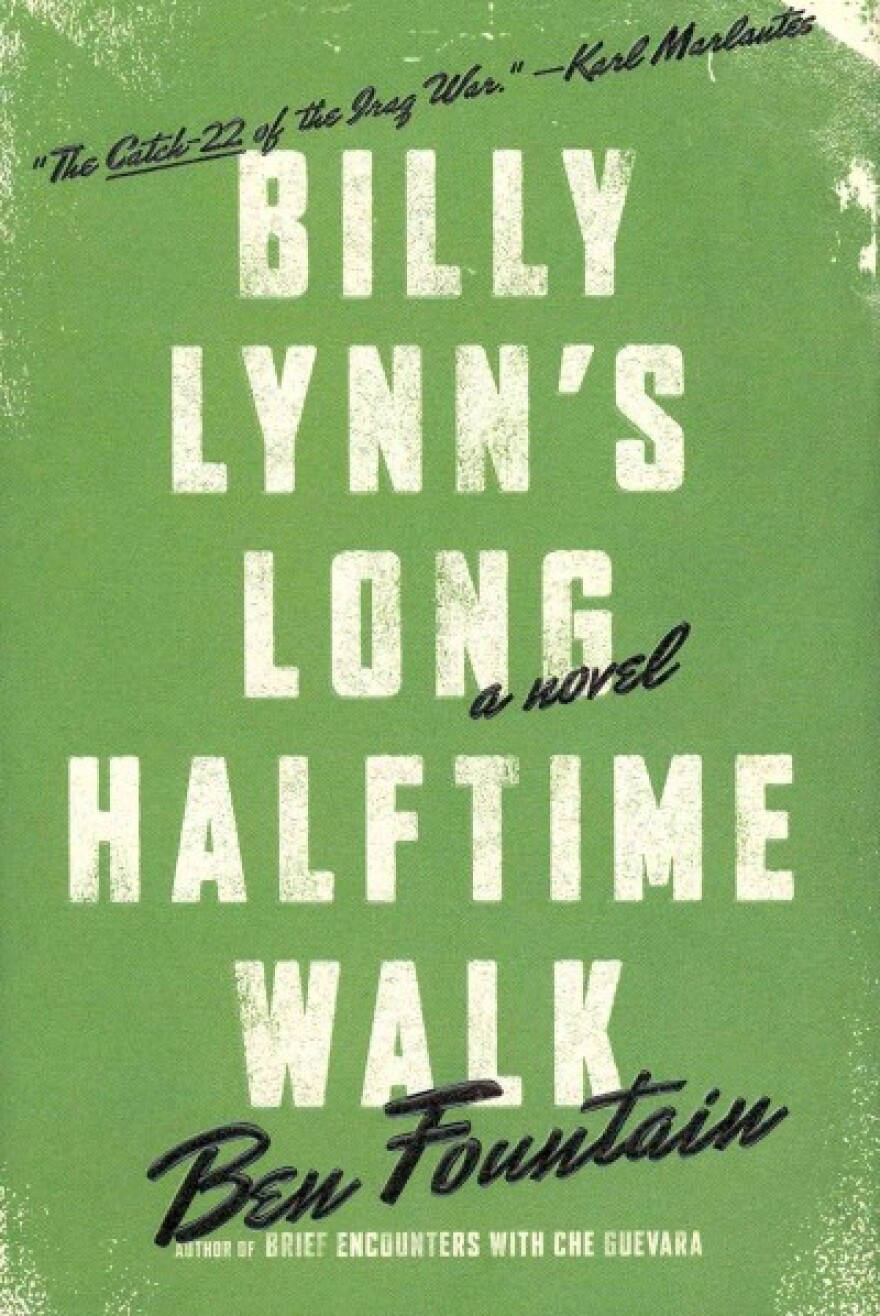Publishers, reporters and authors gathered Tuesday at the New School in New York City to celebrate this year's exceptional nominees for the National Book Awards. In advance of the awards on Wednesday night, NPR recorded the 10 nominated authors for fiction and nonfiction reading from their works.
These 10 books — which tell the stories of a young drug smuggler, lovable philanderers, holograms in the Saudi desert, and more — inspired, informed and entertained readers in 2012.
Hear two winners — Louise Erdrich and Katherine Boo — and eight finalists as they read from some of the year's best books.
Copyright 2024 NPR. To see more, visit https://www.npr.org.
Fiction Nominees
This Is How You Lose Her

by Junot Diaz
Junot Diaz's latest book of short stories, This is How You Lose Her, revolves around a colorful collective of philanderers. In his unique street style of Spanglish and slang, Diaz explores the infidelities, inconsistencies and indescribable joys of love. As Fresh Air's Maureen Corrigan writes, "A good man is hard to find in these stories, and when you do find him, he's always in bed with someone else."
Listen to Diaz read from This Is How You Lose Her.
A Hologram for the King

by Dave Eggers
In lovely, pared-down prose (by Dave Eggers' standards, that is) A Hologram for the King recounts the trials of consultant Alan Clay, hounded by steep debts and a weird lump on his neck, as he tries to sell holographic technology to the Saudi king. Unsurprisingly, Clay is swept up from his tent in the desert into various Kafkaesque misadventures in the King Abdullah Economic City. The trademark Eggers quirk factor is offset by unusually beautiful writing, and Eggers offers elegant commentary on some of our most pressing national anxieties — insecurities about outsourcing and global competitiveness, not to mention sexting, alienation in the digital age and, of course, weird lumps.
Listen to Eggers read from A Hologram for the King.
The Round House

by Louise Erdrich
In Louise Erdrich's latest novel, The Round House, an Ojibwe woman suffers a savage assault — she is raped and doused in gasoline. Her young son and his friends set out to find her attacker. Reviewer Alan Cheuse writes that this is Erdrich's best novel yet: "Never before has she given us a novel with a single narrative voice so smart, rich and full of surprises as she has in The Round House." The book is laced with emotional nuance, and demonstrates in painful detail the legal and cultural obstacles to prosecuting rapists on a North Dakota reservation.
Listen to Erdrich read from The Round House.
Billy Lynn's Long Halftime Walk

by Ben Fountain
Billy Lynn, the 19-year-old protagonist of Ben Fountain's novel, has just returned from Iraq. When a cameraman happens to film Billy's company in a skirmish, the footage quickly goes viral, turning Billy and his companions into national heroes. The author tells NPR's Laura Sullivan, "I wanted to try to capture the intense experience that Billy and the other Bravos are having, this very vivid, almost-overwhelming sensory experience. ... I didn't want to give the reader a rest." He achieves this with prose that is vivid, vulgar and squirming with life. Commentator Nancy Pearl calls it "one of the most moving and remarkable novels I've ever read."
Listen to Fountain read from Billy Lynn's Long Halftime Walk.
The Yellow Birds

by Kevin Powers
Kevin Powers' The Yellow Birds details the friendship between two privates who serve together in Iraq, and later navigate a tense homecoming. As he charts how war binds and breaks the men, Powers' poetic language gives intimacy and intensity to the conflicts of war, and the conflicts within ourselves.
Listen to Powers read from The Yellow Birds.
Nonfiction Nominees
Iron Curtain

by Anne Applebaum
Anne Applebaum's Iron Curtain explores the domino effect of communism in the wake of World War II. Before the Soviet bloc went bust, its network of regimes created an atmosphere of paranoia and brutality that would affect millions. As Stalin extended his suffocating reach, he provoked an identity crisis in a dozen different countries that still echoes today.
Listen to Applebaum read from Iron Curtain.
Behind The Beautiful Forevers

by Katherine Boo
In Behind the Beautiful Forevers, Katherine Boo, a New Yorker staff writer, chronicles the lives of those who exist in the shadow of modern India — the residents of the Annawadi slum in Mumbai. With poetic prose, Boo brings life and beauty to the teeming slums, casting a light on the dreams and downfalls of those who struggle to lift themselves from abject poverty.
Listen to Boo read from Behind the Beautiful Forevers.
The Passage Of Power

by Robert A. Caro
The word "hefty" fails to describe Robert Caro's The Passage of Power. The fourth installment in this monumental biography of Lyndon B. Johnson doesn't disappoint, entrancing readers with Caro's trademark combination of assiduous research and spellbinding prose. Even four volumes later, tackling the notoriously complex and controversial president is no easy task. Yet as critic Michael Schaub remarks, "Caro's portrayal of the president is as scrupulously fair as it is passionate and deeply felt."
Listen to Caro read from The Passage of Power.
The Boy Kings of Texas

by Domingo Martinez
Domingo Martinez's painfully honest memoir of growing up in a Texas border town describes family drug smuggling and his grandmother's short-lived pet piglet. In a commentary for All Things Considered, Martinez writes: "I didn't know how to write memoir. But I found that when I told people about growing up in Brownsville, Texas — it sounded to them like stories from another world. Stories about families swapping children, and smuggling drugs with my parents, or my whole family sending out a chain letter, terrified of what would happen if we didn't. Those stories astonished people ... so I wrote them down."
Listen to Martinez read from The Boy Kings of Texas.
House Of Stone

by Anthony Shadid
In this exquisitely realized memoir, published shortly after his death, New York Times reporter Anthony Shadid writes about his return to Lebanon, where he slowly rebuilt his great-grandfather's abandoned house. The House of Stone melds the thoroughness of reportage with the elegance of poetry as it chronicles the history of Shadid's house, his family and, ultimately, Lebanon.
Listen to Nada Bakri read from her late husband's book, House of Stone.




